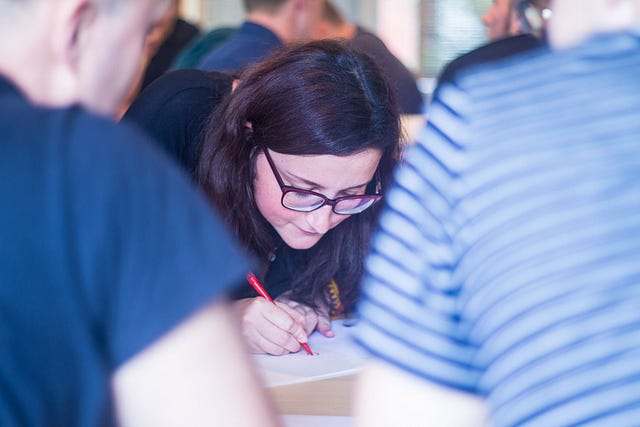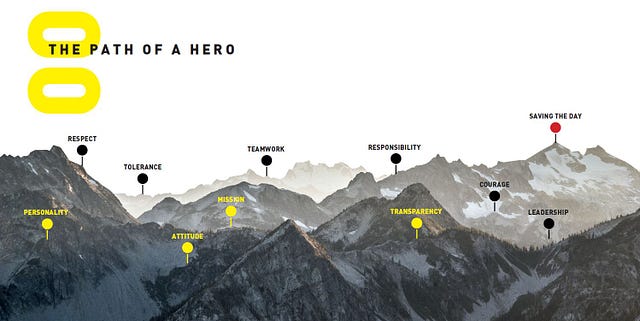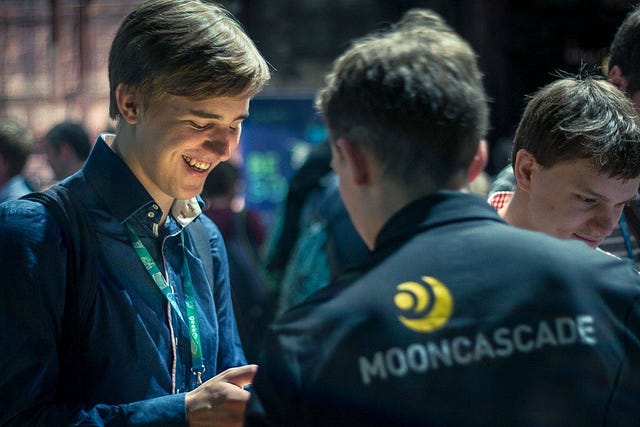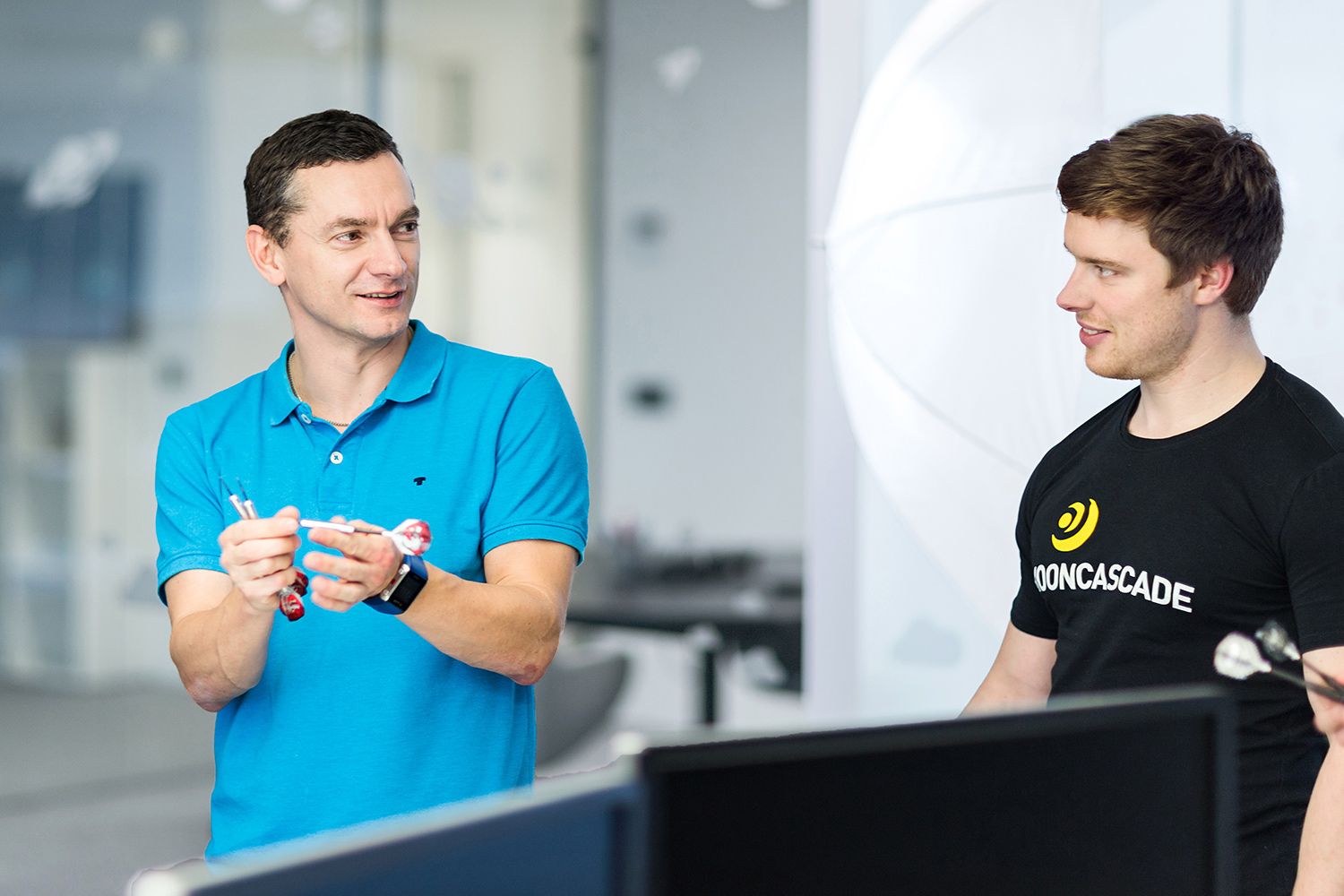If every single one of your employees is being headhunted every day
First of all — congratulations! If most of your colleagues receive offers from recruiters on a daily basis, you must be working with one hell of an awesome team. Exactly what you as an HR manager, CEO or founder can do to avoid losing them is what this article is about.
ABOUT HEADHUNTING IN GENERAL
Although headhunting is common practice, especially in the tech sector, the scale of how much it affects your company may vary a lot. In Estonia, a tiny Nordic country that has a population of only 1.3 million, we have more business start-ups per capita than any other country in Europe. So your guess would be right — we have a considerable labour shortage in the IT sector.
But you might ask, wouldn’t having your country named the most advanced digital society in the world attract international talent, which could ease the situation?
In many cases, it would. Yet despite the fact that Estonia is almost 50% forest and has over 2000 islands, and is one of the cleanest places to live, our winters are cold and weather pretty bad. As it happens, a lot of that would-be talent would usually prefer summer surfing to winter swimming.
That means we’re pretty much stuck with what we’ve got. It makes our daily lives as entrepreneurs difficult, but it also provides a good challenge. If everyone is fishing in the same pond, then how can you make sure that while you’re focused on the catch, someone else isn’t focused on your stash?
KNOW WHERE YOU STAND
In a situation like that, it’s tempting to bring out the heavy artillery and fire in every direction on all fronts. If a company claims that they have everything — the best working environment, the highest salary, individual self-fulfilment and motivational work — then that’s usually exactly what they have.
Because like in marketing, your employer branding has to focus first on who you’re targeting, and second — the message — on how you address them. The problem with presenting yourself as the best employer (besides the fact that it’s an empty message that addresses no one) is that it’s simply not true.
As a huge company, you might have the highest salaries, but you’ll never have everyone in the company on a first-name basis like in a small, family business. You might have the best working environment with all the bonuses and benefits, but the work itself might not exactly be an engineer’s dream job.
The point is — you have to know where you stand on the market and what you are competing with. Only then can you focus on your strengths — and build your branding based not on just what makes you better, but on what makes you stand out from your competitors.
FOCUS ON YOU STRENGThS
Knowing your weaknesses can help you to become better at getting rid of them, but your strengths are the key to successfully recruiting and keeping your people. As these strengths are different in every company, there’s no magic spell that could make you a Michelin star employer immediately, but the following guidelines can help you to figure it out.
- Figuring out your strengths: ask for input
The biggest mistake you can make is also the most humane thing we do even without noticing it: we assume that we know.
If something is very clear to us, we assume it’s clear to other people, as well. If we think something is important, we think other people consider it important, too. As this is the only world we know, we assume that everyone’s experience in this world is the same. But in reality — things couldn’t be more different.
Mooncascade has always grown very fast, about 100% a year in terms of revenue and employees. When we were smaller, the understanding of why we existed and what made us good at what we did spread organically. As we grew bigger, we realised that we needed to gather that intuitive knowledge and formalise it in a meaningful way.
This is how we did it:
- Instead of sitting down with the HR manager and writing out what we thought our values were, we organised a workshop at the company’s summer retreat;
- The workshop was like reverse brainstorming, where we asked people to come up with ways Mooncascade could turn into the worst company ever;
- The second part of the workshop was to write out countermeasures for how we as a team could avoid these things.

This is why we did it:
- The task was playful — people didn’t freeze in fear of not knowing the correct answer, but could use their imagination;
- Almost all our employees participated;
- As groups were commenting on their horror scenarios and countermeasures, they spoke about what was important to them and what they believed in.
Only then could we start to draft a document of our values that later grew into the Mooncascade Hero Code of Honour.
2. Talk about your strengths: storytelling
We are drawn to stories for a reason. From bedtime stories in early childhood to proverbs and sayings we come across as adults — the lessons they provide, the exciting journeys they take us on and the opportunity to unleash our imaginations are what captivate our attention and interest as human beings.
Branding, at the same time, is a matter of perception, and how a person feels about your brand typically determines whether they buy your product, or in this case — whether they choose to come work for you or not. In order for potential employees to form a personal connection with your brand, your story must embody human challenges that resonate with your audience.
- Mooncascade was founded in the middle of the economic crisis in 2009 by four software engineers.
- Despite the fact that they were working from one of the founder’s grandmother’s apartment and the company didn’t make any profit for almost a year, they managed to pull through.
- Why? Because they were good at what they were doing and they believed in their team.
The quality of our work and faith in the team are the foundations Mooncascade is built on. They provide the framework of how we tell our story. The components of the story can vary, but the message — relatable, inspiring, and true — is always the same: almost anything is possible if you’re willing to go the extra mile, to work hard and dream big.

3. Scale it: brand ambassadors
If you know your strengths and have a captivating story for presenting them, you’d naturally want this story to be shared. To accomplish that, you have to have your key people on board. Here’s a short (and incomplete! — the details depend on the specifics of your organisation) list of whom to consider and how can they help:
- By integrating employer branding with the general marketing strategy, your marketing manager can help you to reach your target audience across different channels;
- By being a personal example and carrying values, leaders (founders, CEO, managers, etc.) contribute to top-down internal communication, and contribute to forming the general image of how the brand is perceived by the public;
- Everyone talking on behalf of your company or representing you at conferences, delegations, events — your spokespeople are your brand ambassadors. Educate and brief them about the key messages;
- When it comes to word-of-mouth marketing, your employees are the first and most reliable source someone would turn to. Company culture and internal communication can make sure everyone’s feeling the same vibe when it comes to who you are;
- In case there are people working in the same field as you, for example your company has a whole HR department, it’s wise to create a toolkit of sorts for key messages and elements of the story that people can use in their daily jobs.

SUMMARY
So let’s recap. Although everything mentioned above contributes to recruiting and employer branding, knowing your strengths and storytelling are about making your employees happy — giving them a purpose, a mission, a professional self-identity and ways for achieving self-fulfilment. It’s how you make sure that the whole company is living and breathing the same values that your hearts beat to the same drum, and everyone is going after the same goal.
If people are happy and feel they have purpose in their lives, it takes more than a letter offering twice as high a salary or sauna at the office for them to leave.
Mooncascade
Mooncascade is a Machine Learning & Product Development company focused on building new disruptive solutions with real business and market impact. With a team of nearly 100 specialists, we are chosen product development partner for all regional telecommunication companies, work closely with financial companies, and are often brought in when large industries require an agile and experienced product development partner.

